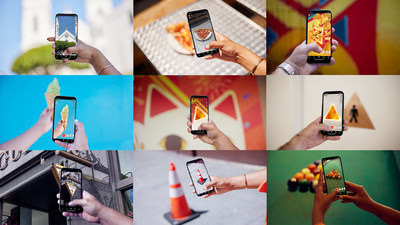Augmented Reality: A Game-Changer for Brands and Consumers
The global augmented reality and virtual reality market is on track to reach a staggering $454.7 billion by the end of the decade, with an impressive annual compound growth rate of 40.7%. This growth is being fueled by the widespread adoption of high-speed internet and the increasing popularity of gaming, according to a report by Valuates Reports.
One of the key drivers of this growth is the way brands are incorporating augmented reality into their marketing campaigns. Recent examples have shown how AR can boost consumer connections and drive purchases. According to a study by Magna Media Trials, consumers feel 14% more connected to a brand when experiencing augmented reality compared to traditional pre-roll ads. Interactive and fun AR lenses have been found to increase brand awareness and memorability, while gamified entertainment lenses enhance brand image and shoppable lenses encourage conversions.
Major brands are leveraging AR in innovative ways to engage with consumers and drive business results. AT&T, for example, partnered with Meta to create a new version of the classic “snake” Nokia mobile game using AR, showcasing the capabilities of its 5G network and attracting more customers to its mobile plans. Doritos launched a national campaign centered around an AR Snapchat lens that transforms real-world triangles into the brand’s chips, offering users the chance to win prizes including $250,000. PepsiCo, the parent company of Doritos, has also experimented with AR campaigns, such as a joint campaign with Pizza Hut that allowed soccer fans to play as Manchester United star Paul Pogba.
Ocean Spray Cranberries successfully boosted awareness in Chile with an AR-driven packaging campaign that allowed customers to unlock games and product information. Rafael Belloso, senior brand marketing manager at Ocean Spray, highlighted the high level of interaction and engagement that AR can provide, as well as its cost-effectiveness compared to traditional marketing budgets.
Chiwei Lee, head of tech, telco, and entertainment at Meta’s Creative Shop, emphasized the democratization of AR and VR technology through social media tools, opening up new opportunities for brands to create meaningful experiences for consumers. Brands are increasingly embracing these tools to drive deeper engagement and create memorable experiences for their customers.
The future of marketing is undoubtedly intertwined with augmented reality, and brands that embrace this technology are poised to stand out in a crowded marketplace. Subscribe to our newsletter to stay updated on the latest marketing trends and insights.
